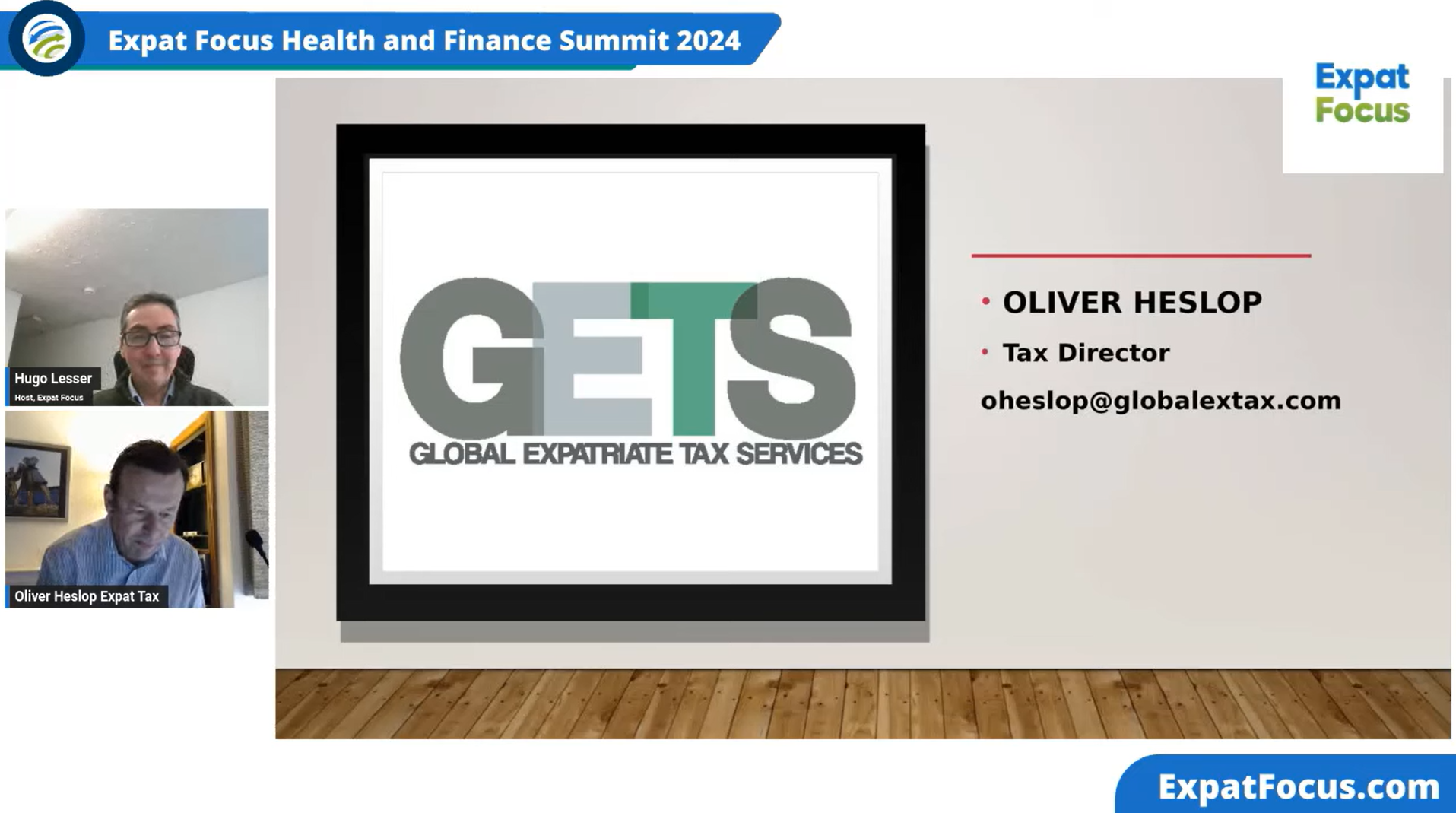At the recent Expat Focus Health and Finance Summit 2024, Oliver Heslop, founder of Global Expatriate Tax Services (GETS), shared his expertise on UK taxation for global citizens. Oliver, a highly experienced UK tax specialist dealing with expatriate cross border issues, provided valuable insights for both British expats and foreign nationals navigating the complexities of international taxation.
Leaving the UK: Essential Tax Considerations
For British citizens planning to leave the UK, proper communication with HM Revenue and Customs (HMRC) is crucial. While not mandatory, filing a P85 form to notify HMRC of your departure is highly recommended. This simple step can significantly smooth your tax transition and help maintain clear records of your status.
Achieving non-resident status is a critical goal, particularly for those moving to low-tax jurisdictions like the Middle East. This classification can lead to substantial tax savings, potentially allowing for 0% tax on employment income earned outside the UK. However, maintaining strong ties to the UK through frequent visits, property ownership, or family connections could jeopardize this status.
Contrary to popular belief, the 183-day rule isn’t the sole determinant of tax residency. Oliver advised using 90 days as a general guideline for UK visits, stressing the importance of meticulous record-keeping for all travel dates. He also highlighted the unique aspects of the UK tax year, which ends on April 5th, differing from many other countries. Expats should be aware that UK tax returns are due by January 31st following the tax year end, with no extensions permitted.
Moving to the UK: Navigating Tax Reliefs and Obligations
For those relocating to the UK, several key tax reliefs can significantly reduce tax burdens. One such relief is the tax-free accommodation benefit for the first two years of residency, which can result in substantial savings. Based on an annual rent of £30,000, this could lead to tax savings of up to £12,000 in the first year alone.
Another valuable benefit is the Overseas Workdays Relief, providing significant tax savings on income earned for work done outside the UK during the first three tax years of residency. This relief can be particularly advantageous for those who split their time between the UK and other countries.
Oliver also mentioned the controversial but potentially beneficial non-domicile (non-dom) status. This classification allows individuals born outside the UK to exclude foreign income and gains from UK tax for the first seven years of residency. However, both major UK political parties are considering reforms to this system, potentially reducing the beneficial period to four years.
Understanding UK Tax Concepts and Avoiding Common Pitfalls
Oliver emphasized the importance of grasping key UK tax concepts. These include the Pay As You Earn (PAYE) system for collecting tax through payroll, the Gift Aid mechanism for making tax-efficient charitable donations, and the significance of tax codes in determining take-home pay.
Common mistakes made by expats and newcomers to the UK tax system were also addressed. These include misunderstanding the UK tax year dates, assuming tax reliefs are similar across countries, and bringing savings into the UK without considering the potential tax implications, especially for non-doms or those with foreign earnings.
Strategies for Minimizing Tax Liabilities
To optimize tax positions, several strategies were suggested. For UK expats abroad, these include carefully managing non-resident status, keeping detailed records of UK visits, and exploring voluntary National Insurance Contributions to maintain state pension rights. Those moving to the UK were advised to investigate available expat tax reliefs, consider the timing of their move to take advantage of split year treatment, and explore non-domicile status benefits if eligible.
Property owners were encouraged to maintain detailed records of expenses related to rental properties to maximize deductions. The split year treatment, which allows individuals moving to or from the UK mid-tax year to exclude income earned before arrival or after departure, was highlighted as a valuable relief for smoother transitions between tax jurisdictions.
Looking Ahead: The Evolving UK Tax Landscape
The presentation concluded with a look towards the future of UK taxation. With both major political parties considering reforms, particularly to the non-dom system, the tax landscape is likely to evolve. These potential changes could significantly impact tax planning for those moving to the UK, underscoring the need for ongoing attention to tax matters.
In conclusion, navigating the UK tax system as an expat or newcomer presents both challenges and opportunities for optimization. Transparency in all tax matters is paramount, and seeking professional advice is strongly recommended to ensure compliance and maximize available benefits.
As global mobility continues to increase, understanding the nuances of UK taxation becomes ever more crucial for international professionals and businesses. By staying informed and seeking expert guidance, individuals can effectively navigate these complexities, ensuring they remain compliant while optimizing their tax position in an increasingly interconnected world.

